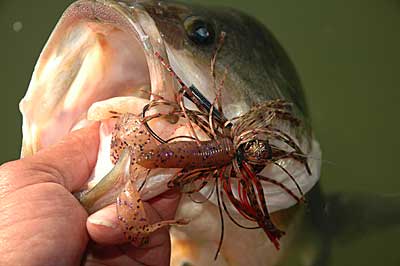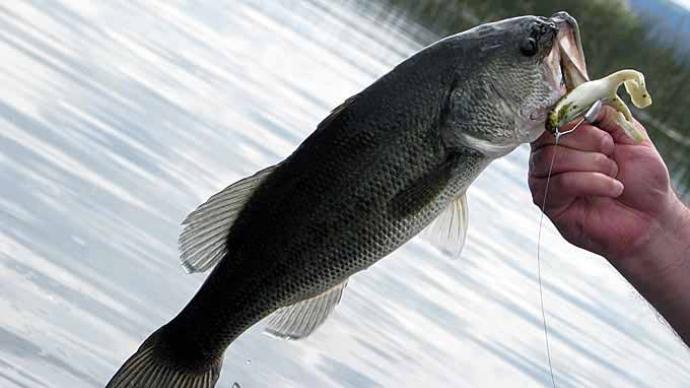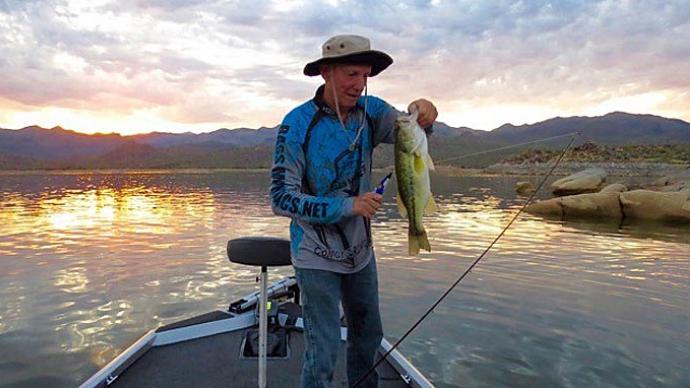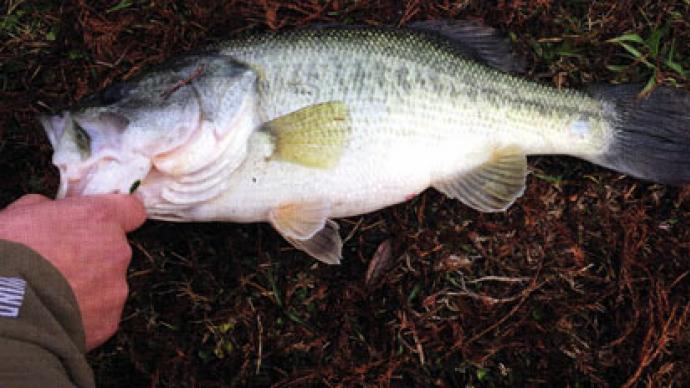
I am writing this article more towards the Jr. Bass Anglers and the young adults that the bug has bitten. You must know the one I'm talking about, right? It's the one thing that gives a person what they call "Bass Fever" (don't worry, it's nothing like the Beaver Fever that one would get from drinking contaminated spring water.) When I say that this article is geared more towards the younger generation, the middle-aged and the more matured (slightly older) generation of anglers already know what I'm talking about because they were already bitten some time ago.
Let's face it. Once you hook into your first quality bass, you're done for. Yep! Now it's all over for many of the other things in your life because the bug has bitten you, and for most of the ones that are bitten, it seems like the "Bass Fever" gets worse and keeps on spreading.
Let me tell you a little story on how I got "bitten by the bug" many years ago. Back in the early seventies, while serving my country in the U.S. Navy, I had an excellent friend that had asked me one weekend if I would like to go fishing with him and his brother over the weekend. Now, being a part-time (about a twice a year) "Worm, Hook & Bobber" angler, I didn't even know much about what a bass was and hadn't the foggiest on how to catch one, so I said, "sure, I'd love to go." Well, that weekend, my life as a twice-a-year-angler had changed me forever.
Jim, the friend who asked me to go, told me not to bring anything but myself. So I showed up at his home (close to the California Delta) on Saturday morning, ready to sit and bob worms for fish. Boy, was I wrong! When we got to the delta, he launched his boat, an older wooden boat that must have been made during World War I, and we jumped in the boat and went up river a bit. A few minutes later, Jim stopped the boat and dropped his anchor, and there we sat for a moment.
I picked up a rod and reel he had loaned me, asking him where the bobbers, hooks, and worms were. He started to smile at me and told me that he forgot to stop and buy (live) worms on the way to the river. I didn't know what to think now because that's the only way I had ever fished before. Then, Jim reaches in a leather bag, pulls out a tackle box, and opens it up.
I was puzzled now because as I was looking in his tackle box, all I saw were some hooks, sinkers, and a few bags of these purple rubber worms (for you older anglers, these were some of the first artificial worms that Tom Mann made called Jelly Worms.) Jim told me to hand him my rod so he could set it up for me, so I just kept my eyes glued on what the heck he was doing. Next, Jim hands me the rod with the Jelly Worm (Texas Rigged) and tells me to cast it over by a bunch of lily pads that were about 20 yards from us.
After I made my cast (like bobber fishing), I set my rod down, and immediately Jim told me to pick it up and hold it slightly, keeping the slack out of the line, so I did. Then, suddenly, something grabbed my line, and my pole bent way over. My line was peeling off my reel (shoot, I didn't even know how to set a drag back in those days), so Jim reaches over and tightens my drag and tells me not to give it any slack. Well, the rest is history! A whopping five and a half pound largemouth bass. From then on, I went every chance I could, and yes! I now had "Bass Fever."
Now decades later, I own and operate a 3-Day "On-Water" Bass Fishing School and bass charter service, am a co-host on radio and TV shows, teach seminars, fish bass tournaments (when I have the time), and write articles for magazines and over 200 outdoor Internet sites. With all this exposure, I get many e-mails and phone calls. I would say that the most significant percentage of these e-mails and calls (about 70%) come from ages ranging from around 12 years old to about 35 years young. These anglers call me to either sign up for my school charter service or for information on just about every topic you can imagine when it comes to bass fishing. Once in a while, I'll get a few questions non-related to angling, but mostly anglers seeking information to help them understand more about this great sport, and I'm talking men, women, boys, and girls. The "Bass Fever" has bitten so many people that now bass fishing is considered America's # 1 freshwater sport. It is a multi-billion dollar industry because it's addicting!
Here I'll answer some of the most important questions that you folks continually ask, so here goes.
The number one question I get asked about is equipment such as what kind of boats to buy, rods, reels, line, electronics, hard baits, plastic baits, hooks, weights, colors, fish formulas (or as some refer to as attractants), containers, and on, and on, and on. Would you like to guess what the next topic asked would be? You got it right!!!! "How the heck do I use this stuff?????" and then questions about water and weather conditions, how to locate fish, what baits are the best to use, and so on. You know what bothers me is the anglers that think they have to go out and spend a year's worth of wages to get started or step up to a novice level in bass angling or even up to pro status.
Now, please pay attention to what I say to those who think they have to buy everything that looks good without the funds to do it. Suppose I had a mentor, instructor, or anybody to help me get started (other than Jim, who unfortunately got transferred shortly after my trip with him). In that case, I could have saved so much money over the next several years I could have bought a brand new car or truck - because I started buying everything that looked good. I DIDN'T KNOW WHAT TO DO OR BUY FOR BASS FISHING for an extended period because nobody would help me. Back in those days, bass fishing was just getting started, and the anglers who fished for bass back then wouldn't share anything as far as information!
Here are some simple rules you could go by that may help you remedy the problems I had suffered years ago.
- Don't buy everything on the shelf that looks good! There are a handful of baits that will work anywhere in the nation. Face it. Bass are bass and pretty much act the same anywhere you go.
- Learn as much as you can by reading, but try to find an experienced angler who is willing to share his information with you.
- Check around and talk to anglers for information. I found that most (I said most) bass anglers are great people and would love to share information about the sport of bass fishing with others.
- Enroll in a bass fishing school if at all possible. Not just mine, but others teach bass fishing in a few different parts of this great nation.
- Always think of safety while on the water, and be courteous to others!
- Shop around for the best quality equipment for the money you can afford.
I hope that this will give you a better understanding of bass fishing in general. If you want a career in the bass fishing industry, be prepared for many ups and downs, but it usually happens if you put your mind to anything and work hard for it.
Until next time! Take Care & God Bless!




